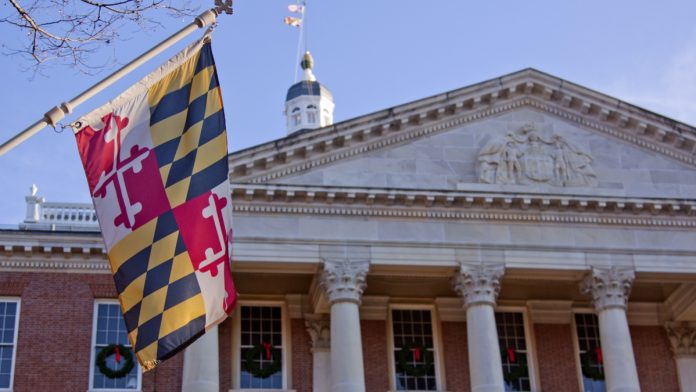An online casino measure in Maryland is changing.
House Bill 1319 has been amended by the Maryland House Ways & Means Committee as a piece of legislation that proposes to authorize iGaming in the Old Line State. HB 1319, which was introduced in February, would put the Maryland State Lottery & Gaming Control Agency in charge of overseeing iGaming across the state. The measure, which would create a new revenue stream in Maryland, has received backlash from hospitality workers, union leaders and local organizations. Lawmakers have amended the bill.
HB 1319 would allow up to 30 wagering licenses issued across Maryland. The licenses would last for five years with an initial application fee of $1 million, which can be paid in installments by prospective operators. There would be three types of licenses available for operators in Maryland under the amendments, which include licenses by right for brick-and-mortar casinos, Class B wagering facility licenses and competitively-awarded licenses.
Retail casinos across Maryland can have up to three licenses.
If awarded a license, renewal fees are 1% of an operator’s average annual gross proceeds from the last three years. Licensees are barred from accepting revenue from countries known for money laundering, a terrorist state or where iGaming is illegal.
Lawmakers have also made additional amendments to Maryland’s latest iGaming bill.
HB 1319 now includes a prohibition on credit cards for iGaming activities. The measure would also assign a counselor to any individual who puts themselves in the state’s voluntary self-exclusion program instead of the person opting into the service.
Cannibalization concerns in Maryland
HB 1319 is drawing cannibalization concerns due to a potential loss of jobs and a decline in retail casino revenue. Those who oppose the measure also believe iGaming could increase problem gambling for residents across the state.
Despite the concerns, iGaming could generate more than $900 million in annual revenue for Maryland. However, online casinos could decrease contributions to the Blueprint for Maryland’s Future Fund, which supports public education.
A fiscal report released in February estimates a $64.7 million decrease in funding for the Blueprint for Maryland’s Future Fund due to a drop in revenue at brick-and-mortar casinos.













